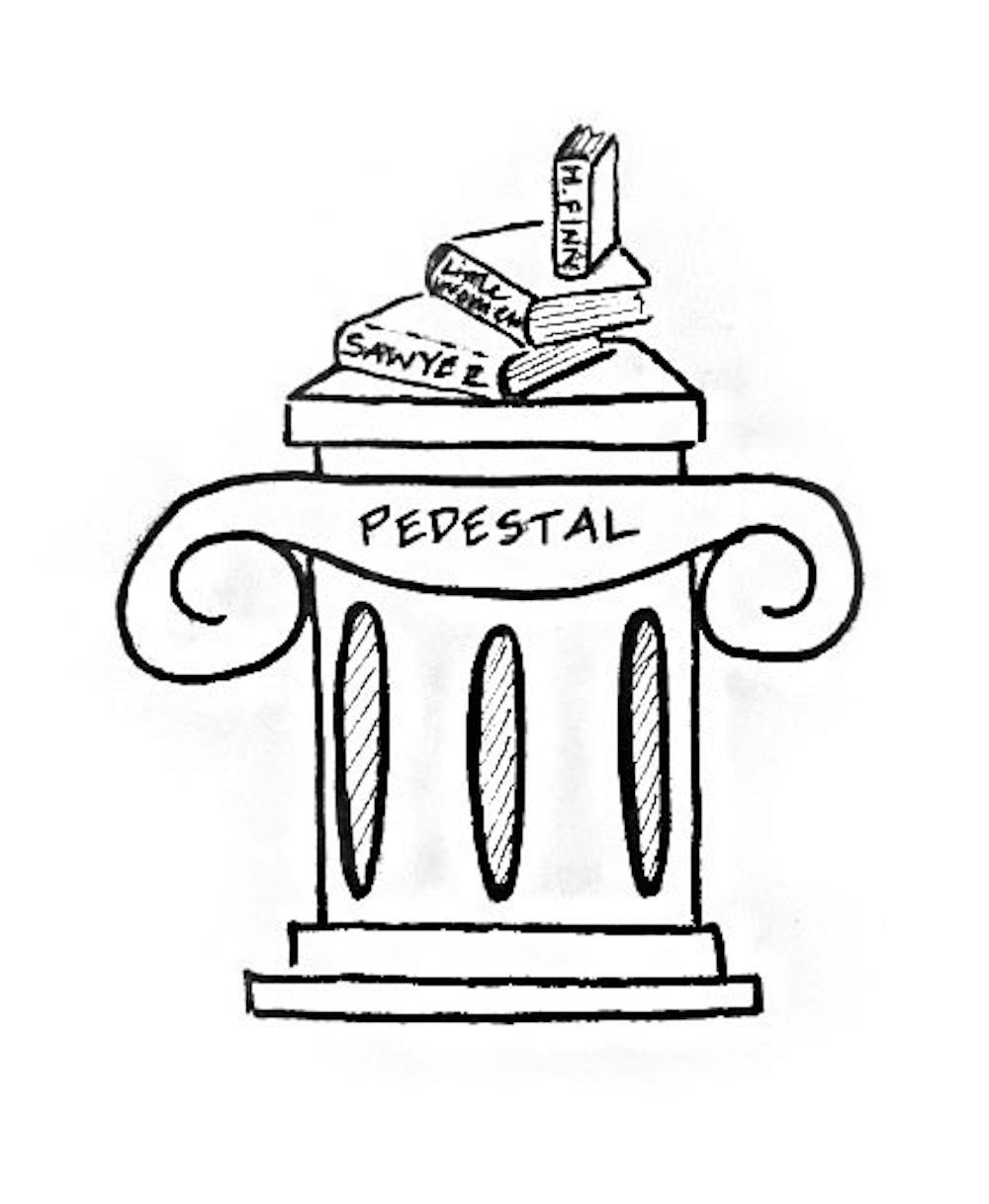“WE ARE CALLING ON THE STUDENTS OF WILLIAMS COLLEGE TO BOYCOTT THE ENGLISH DEPARTMENT,” reads the front page of a Google Website put together by a group of Williams students in early November. Dump the structurally racist and whitewashed English program at our liberal arts school, these pro-boycotters plead, for they are “receiving an inadequate education” that “hinders [their] learning.”
Oh boy. Here we go. Before I address Williams directly, let’s talk about books for a moment. Those long, almost lost, beautiful blocks with words, ideas, longings, thoughts, and so on. Yes, books. Sweet, sweet books.
More specifically, actually, I’m going to talk about the "literary canon." That is — those works of which are deemed superb and worthy of being taught as tools to educate. They are hard and complex by their nature, and they stretch the mind. In effect, they teach one how to think clearly (granted our idea of education still stands).
To start I might claim that all books are not created equal. (Their authors, yes I agree, are, but that isn’t the topic of discussion). Some books, most books actually, are simply inadequate when compared to those texts that have, or are expected to, "stand the test of time." And this test, you may have guessed, is a difficult one: In order to pass, the text must transcend place, trend and era. No small feat for a fictional tale. Nonetheless, this is the criteria, and writers throughout history have set the bar high. And in the English language, as it so happens, writers throughout history have been predominantly white and male. This creates tension in the classroom, especially given that course reading lists are zero sum games: Every addition demands a subtraction.
For those of you out of the literary-loop, let me set the stage. After the late twentieth century, it was well established that reading strictly the emblematic ‘Dead White Males’ no longer suffices for the study of English literature. And for this reason, after much argumentation back and forth, the canon was expanded; newer, more diverse voices received spots at the table — Toni Morrison, Chinua Achebe, Zora Neale Hurston, to name a few (all of whom you should read).
As a result, it largely seemed like the “canon wars” were put to rest. Students were reading and being taught the strongest that has been written in the language and, given that artistic literary genius is not an attribute exclusive to deceased white men, more females and writers of color than ever before could be and still are found on reading lists across the country.
But, alas, the war has been rekindled. And here we are.
Though not exclusive to the typical dead white male demographic, it seems safe to say that literary genius is not found in every soul who ventures to pick up the pen. No matter how hard you try, you cannot democratize brilliance. But as the Williams boycott demonstrates, people will indeed try.
These newer multicultural voices, appropriately added to a canon based foremost on aesthetic merit, are now being dismissed by their very own proponents, those whom I might call amateur radical critical theorists, as “token” instances of ethnic writers in otherwise “whitewashed” syllabi. To be clear, these are the kind of people who loudly proclaim that Shakespeare’s popularity and world-renowned status can be solely attributed to nothing less than white supremacy and white hegemony.
To these people, all I can say is that you aren’t reading closely enough. You might even be taking classes in the wrong department.
In this increasingly scientific, materialistic age, the humanities are under enough stress as it is. The study of English Literature cannot and should not bend to the will of these radical students who wish to turn it into something along the lines of what I’d dub “Oppression Studies,” or something of the kind. Such a department would likely be quite successful in our current academic climate. Still, let the greatest artistic feats of humanity stay where they are. To the braver ones amongst you, maybe even read them. I’m willing to bet you’d learn a lot, potentially even some things you’d wish you hadn’t. These timeless texts tend to act as mirrors. They grant you insight into your own soul and teach you who you really are.
Reading Great Works is now an act of rebellion, apparently; have at it, if you dare. And to those Williams boycotters and closed minded students in general, I have one last thing to say. Silencing, boycotting, cancelling… These aren’t the answers to your complaints. We need open and free (completely free) debate. I myself am a firm believer in the dialectical method. I think there is a reason why Plato wrote dialogues and not treatises: for it is through discussion that we best come to truth and knowledge. If we throw this idea out the door, I’m not so sure what we’ll have left.
Quinn Rifkin is a member of the class of 2022.
Now is the summer of their discontent: looking at the literary canon

Comments



